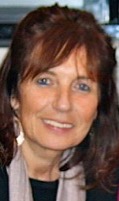Site
Select your branch
IFNY Interview with Fran Strauss, Principal at HealthMark Strategies, LLC
This month, Sabyasachi Dash of IFNY sat down with Fran Strauss, Principal at HealthMark Strategies in New York City.
Fran is a proven Reimbursement & Payer Commercialization Strategist and Market Access Executive with expertise in genetic testing, molecular diagnostics, medical/mobile devices, personalized medicine and diagnostic laboratories. She works with commercial and government payers, employers, unions and advocacy groups. Prior to her consulting career, Ms. Strauss led the Provider Relations and Network Department at Aetna Inc. She also led Market Access departments at Digene Corporation (now Qiagen), Adeza Biomedical (now Hologic) and Perlegen Sciences.
Dr. Dash’s conversation with Fran was beyond insightful: we learned about her life as a consultant with deep roots in biotech-entrepreneurship, what it has been like working with the life science industry as well as her advice for budding life science entrepreneurs.

What motivated you to pursuing a career in Women’s Health?
I pursued studies in Special and Health Education. In time that interest focused on Women’s Health, as an educator and then as a Biotech (Diagnostics) professional.
What are some personal and professional qualities that were critical for you to get where you are now?
Excellent communication skills, a passion for educating women and others in the business community about this important and overlooked niche.
How urgent do you think it is for academic-scientists to collaborate with Industry experts?
While academic scientists are doing an excellent job at identifying new technology with industry experts for Women’s Health, early and continued collaboration is critical for addressing the business needs (financial, clinical and social).
Given your involvement as a Biotech Mentor, are there any personal insights into why academic-scientists find it hard to blend in within Industry?
The passion and skills involved in the creation of new technology can often overshadow the real need for a practical sense of how to launch the product, the data needed to launch the product and how the product will be reimbursed and advocated for by Women’s Health professionals.
What are the common traits or, qualities needed in young scientists who aspire to become entrepreneurs, or who are seeking for industry transitions?
A realistic sense of the commercialization process. Does the product meet an unmet need? Does it lower, increase or remain neutral in terms of overall healthcare costs. Will insurers reimburse? And if yes, what is that process? Will this technology change behavior of physicians? Patients?
How do you foresee the future of Women’s Health in the next few years?
Increase in patient empowerment, mobile technology, big data.
Finally, before we close, what is that one ‘Mantra of Success’ that you would like to share with everybody irrespective of their professional background?
One must be informed, passionate, have a road map to success, and a real desire to improve health and lower costs of Women’s healthcare. Outcomes are key.
